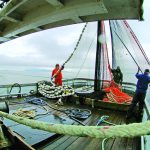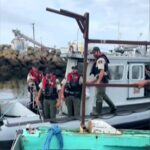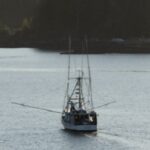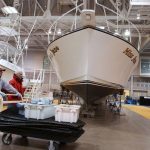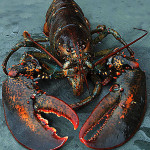FISH-NL raises concerns of conflict of interest over marine escort contract awarded to FFAW executive member
 FOR IMMEDIATE RELEASE June 13, 2017
FOR IMMEDIATE RELEASE June 13, 2017
The Federation of Independent Sea Harvesters of Newfoundland and Labrador (FISH-NL) is calling on the FFAW-Unifor to explain an apparent conflict of interest involving an executive member of the union who won a lucrative marine escort contract with the offshore oil industry.
“Fish harvesters demand and deserve an explanation,” says Ryan Cleary, President of FISH-NL.
The Eastern Princess II, a fishing vessel owned by Nelson Bussey, who serves on the union’s executive board (Inshore, Avalon Peninsula), was apparently hired in recent weeks to escort the Hebron oil platform out to sea.
Marine Escorts are regularly contracted for offshore oil and gas operations to guide marine vessels safely through open water, avoiding fishing gear.
The FFAW decides which fishing boats are hired through the union’s Fishing Guide Vessel Program. It’s not known how many fishing boat owners expressed interest in the contract.
It’s believed that boat owners are paid upwards of $10,000 a day to serve as marine escorts, with the FFAW taking a cut of more than 40 per cent off the top.
Bussey also serves as an “industry director” with One Ocean, a “liaison” organization created in 2006 to represent the “mutual interests” of both the FFAW and offshore oil companies.
FISH-NL has called on the FFAW for almost a week to come clean and reveal details of marine escort contracts, as well as the amount of funding the oil industry pumps into One Ocean or the union directly. The union has yet to respond.
“The fact that a senior executive of the FFAW has received a contract worth a small fortune through the union while also serving on the board of One Ocean raises yet another obvious question of conflict of interest,” Cleary says. “And it’s a question harvesters around the province are asking.”
A spokesperson for Hebron has refused to reveal details of the marine escort contracts, saying the information is confidential. FISH-NL also e-mailed One Ocean to ask how much of its funding comes from oil companies, with no response.
The FFAW-Unifor is generally quiet regarding the offshore oil industry’s exploration and drilling activities off Newfoundland and Labrador, which, for many inshore harvesters, begs the question why.
The media has described the amount of seismic activity set to take place this year off the province’s east coast as “super-sized.”
Seismic activity uses high energy, low frequency sound waves that can penetrate thousands of metres below the sea floor, and while the impact on fish stocks and the marine environment is debatable, the FFAW hasn’t raised any concerns.
That’s alarming, considering fish stocks such as northern cod are still at a critical level, and the Grand Banks in general remain delicate.
The former Obama administration in the U.S. had blocked seismic testing for oil in the Atlantic Ocean, but President Donald Trump is set to allow it — to growing opposition.
Some experts there say seismic testing to find drill sites could harm thousands of animals and affect coastal communities.
-30-
Contact: Ryan Cleary (682 4862)


































